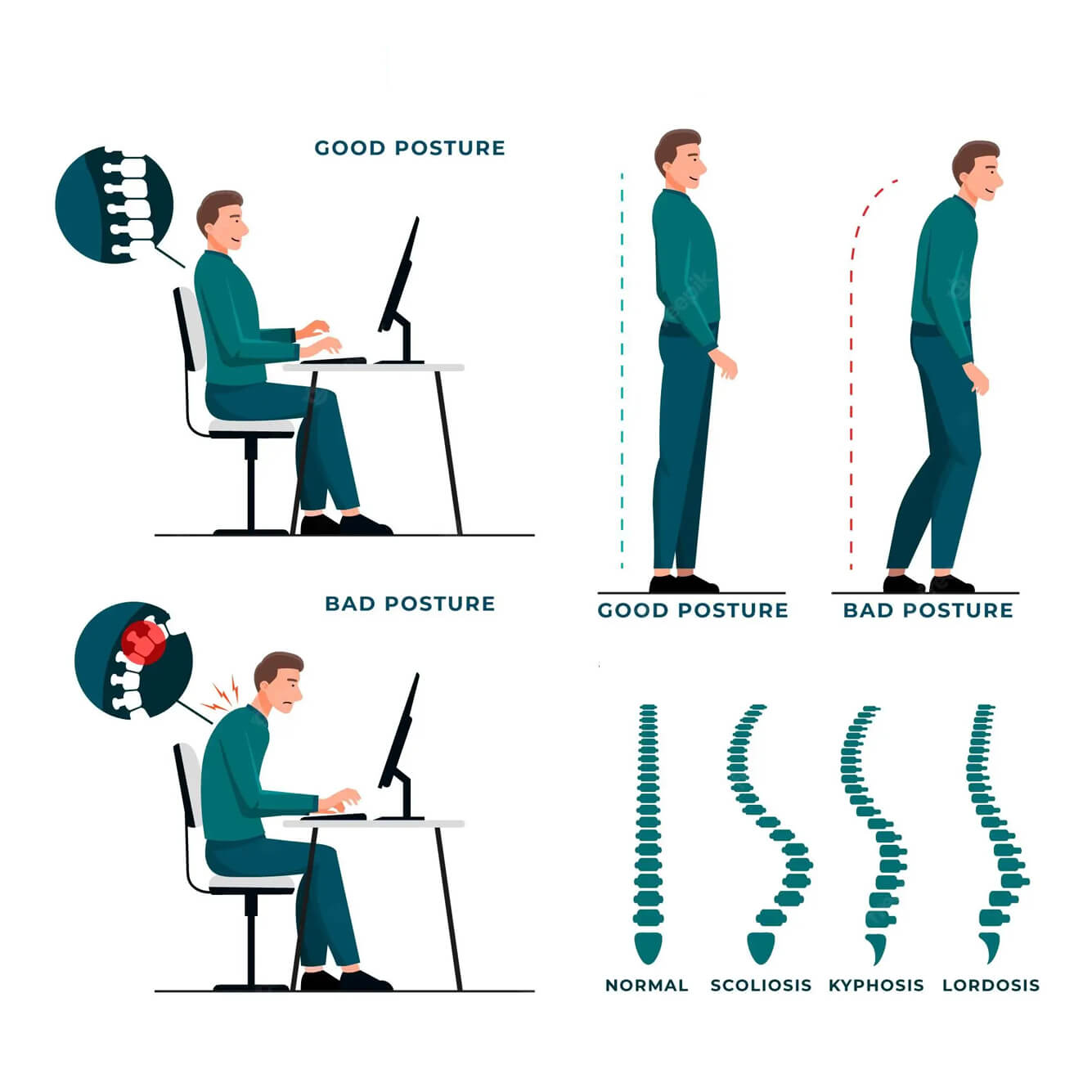

Neck Pain
In today’s fast-paced, screen-heavy world, neck pain has become a common complaint among people of all ages. Whether it’s a dull ache from poor posture or a sharp, shooting pain due to injury, neck discomfort can impact your ability to focus, work, and even sleep.
At Spine Institute, our goal is to help you understand what’s causing your neck pain and guide you toward the right treatment for lasting relief.

What Causes Neck Pain?
The neck, or cervical spine, is made up of vertebrae, discs, nerves, and muscles that support the head and allow movement. When any of these components are strained or injured, it can result in pain. Common causes include:

Constantly looking down at phones, laptops, or reading materials.

Often from overuse, like long hours at a desk or sudden movements.

Whiplash from car accidents or sports-related trauma.

When a cervical disc bulges and presses on nearby nerves.

Age-related wear and tear can lead to osteoarthritis in the neck.

Gradual deterioration of the spinal discs over time.
When conservative  care needs
care needs
a specialist’s  touch.
touch. 
Symptoms to Watch Out For While neck pain might start off mild, certain symptoms can indicate a more serious condition:
Persistent stiffness or reduced range of motion
Pain that radiates to the shoulders, arms, or fingers
Tingling, numbness, or weakness in the arms
Headaches originating from the base of the skull
Pain that worsens with activity or at night
If you experience any of these signs, it's time to consult an orthopedic specialist.
When to See an Orthopedic Doctor Mild neck pain can sometimes improve with rest, posture correction, and over-the-counter medication. However, professional help is crucial if:
The pain lasts longer than a few days
You experience neurological symptoms like numbness or weakness
The pain is a result of an accident or injury
It interferes with your daily activities or sleep
An orthopedic doctor will conduct a detailed evaluation, which may include physical exams, X-rays, or MRI scans to identify the root cause.
Treatment Options
Treatment varies based on the cause and severity of your condition. Some options include:01.
Physiotherapy
To improve posture, flexibility, and strength
Our team at Spine Institute creates personalized treatment plans to ensure you get the care you need—whether that’s conservative management or surgical intervention.

Preventing Neck Pain
You can take steps to reduce the risk of developing neck pain:
- Maintain good posture, especially when using screens
- Take breaks and stretch if working for long hours
- Use ergonomic furniture and devices
- Sleep with a supportive pillow and avoid sleeping on your stomach
Conclusion
Neck pain may be common, but it doesn’t have to be part of your everyday life. With timely diagnosis and expert care, most people can achieve significant relief and return to their normal activities.

